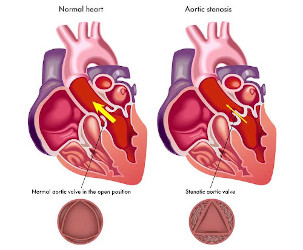
Non-invasive therapy of aortic stenosis: a successful first clinical trial
A world premiere in cardiology has been achieved with the completion of the first clinical trial for non-invasive therapy of aortic stenosis using focused ultrasound. The clinical trial, involving 10 patients, has been conducted by Cardiawave and Prof. Emmanuel Messas at Hôpital Européen Georges Pompidou (Paris, France) and Amphia Hospital (Breda, The Netherlands) and is the result of a longstanding research effort performed by the team of Mathieu Pernot.
Aortic stenosis is a life-threatening condition where the aortic valve is too rigid to open fully during the cardiac cycle, reducing or blocking the blood flow from the heart to the organs. The valve stiffening results from calcifications appearing with age. Aortic stenosis currently affects over 10 millions people in Western countries and becomes a public health issue with increased life expectancy. The only existing treatment consists in replacing the valve by a prosthesis through an open-chest surgery or an endovascular procedure (TAVR). Both methods remain unapplicable in many subjects as they expose patients to significant risks.

The solution proposed by Cardiawave is a fully non-invasive treatment, using high-intensity ultrasound to target shock waves on the aortic valve, softening the valve and restoring a sufficient opening. The technology is the result of many years of research conducted by the team of Mathieu Pernot (Physics for Medicine Paris) in collaboration with the team of Emmanuel Messas (Hôpital Européen Georges Pompidou).
The treatment has been tested for the first time in clinical settings in ten patients ineligible for valve replacement procedure due to severe comorbidities. The main objective of this first clinical trial has been achieved with the validation of the safety of the ultrasound-based treatment. Post-treatment echographic images have even shown an improvement of hemodynamics parameters in the majority of patients.







